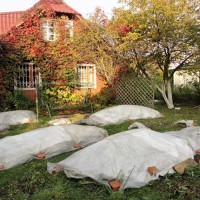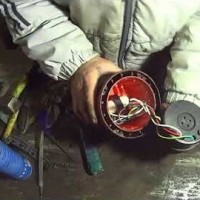What to do and where to call if the entrance smells of gas? Procedure for detecting a leak
Domestic main gas is an inexpensive type of fuel that is still used to create favorable living conditions in private and low-rise buildings. Thanks to gasification, city residents can use stoves and ovens, and boiler owners never suffer from a lack of heating and hot water.
At the same time, gas is a source of danger, and if the installation or use of gas equipment is violated, property and the residents of high-rise buildings themselves may suffer. One of the first signs of potential danger is an unpleasant specific odor.
To prevent irreversible consequences, there are instructions for both residents and Gorgaz employees. In this article, we will look in detail at what to do if the entrance smells of gas, where to call and who to report the leak.
The content of the article:
What to do if you smell gas?
It is a mistake to believe that blue fuel comes into homes directly from the bowels of the earth. In fact, along the way from the mine to the gas stove, it goes through several stages of processing. The composition of the gas is changed so that it reaches homes and businesses in a way that is usable and safe for people.
The basis of the fuel mixture is approximately 75-80% methane, in addition to carbon dioxide, propane, butane, hydrogen sulfide and water vapor.
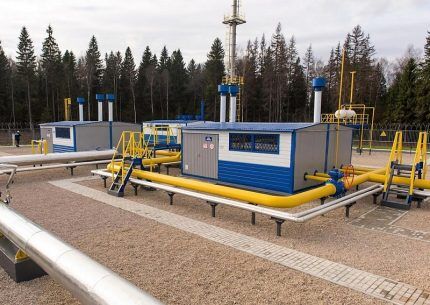
Is it possible to get poisoned by methane at the entrance? Most likely no. But a high concentration of it in the air at the entrance or in the apartment can lead to explosion or fire - but this is a real danger for a multi-story building.
Let's consider the reasons for the leakage of household fuel in a residential building and find out what actions are taken when the smell of gas appears in the entrance.
Causes of unpleasant gas odor
In order to prevent and protect people and buildings from the negative consequences of using explosive household mixtures, special substances are added to them - odorants. The unpleasant smell during a leak belongs specifically to them, and not to the natural gas itself, which smells almost nothing.
Most often used as a marker for household gas methyl mercaptan - a gas with the same disgusting smell as rotten cabbage. Even a small amount of this “aroma” is quickly detected by the average user, and it is quite difficult to confuse it with something else.
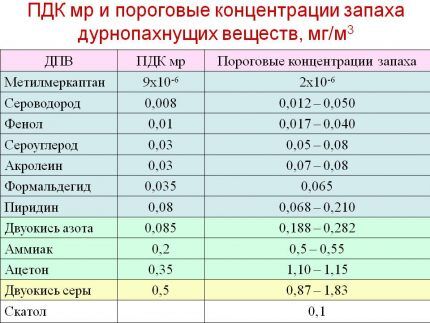
In addition to methyl mercaptan, they use ethyl mercaptan, which also has a pungent odor and good volatility.
Unfortunately, overly restless residents often confuse the smell of gas with other pungent “odors.” Sometimes situations reach the point of absurdity: a spilled bottle of white spirit or a leaking can of kerosene causes a call to the Ministry of Emergency Situations.
Do not forget that there are penalties for a false call administrative sanctions – fines of 1-1.5 thousand rubles. And if this is a false report of a gas leak in a public institution, the criminal liability with all the ensuing consequences: either a fine of up to 200 thousand rubles, or a term of up to 5 years.
But it's not all that scary. If the call is recognized as erroneous (an old grandmother “overdid it” or a small child decided to save the house without dealing with the smells in the entrance), firefighters or representatives of the gas service will simply turn around and leave.
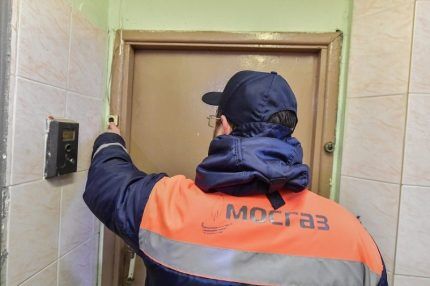
It is clear that a person is not gas analyzer, therefore, cannot accurately determine the composition of substances in the air, so experts urge you to use your mind and soberly assess the situation.
Why do domestic gas leaks occur?
It is easier to react at critical moments if the reason is obvious.
But at the entrance, it may be difficult to determine the cause, because the smell can leak from three places:
- Street;
- apartment;
- basement.
On the street, gas pipes are most often laid underground and brought outside in front of the wall of a residential multi-story building.
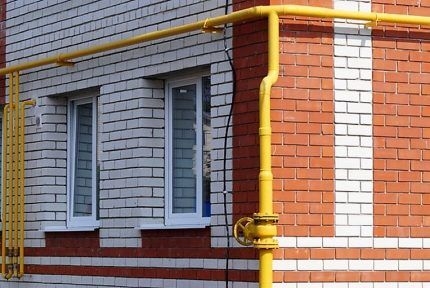
A broken pipe on the street is an extremely rare occurrence. Durable steel can withstand fallen trees and hammer blows during a hurricane. But if the seal of the pipe is broken, the release of gas in the free space is difficult to determine by smell. But you can hear a noise similar to hissing and whistling.
If a crack or hole is located near the entrance door, then some of the gas will get inside the house - hence the possible smell from the street.
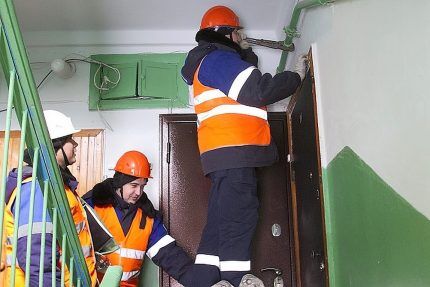
The simplest thing you can do is to quickly notify your neighbors of your suspicions. At this stage, it is often discovered that someone’s home has a leak due to worn hose or a broken burner. Equipment can also break down in the basement if a boiler is installed there or an outlet to the stove is installed (although this is prohibited by installation requirements).
The causes of leakage include the following:
- installation of old or low-quality equipment;
- violation of installation rules;
- violation operating rules;
- untimely replacement of gas hoses, etc.
Installation flaws can be identified by the color of the flames: instead of the “correct” blue, they have a reddish or yellow tint.
The leakage of connections can be checked in the traditional way: dip a sponge in a soap solution and apply it to a suspicious area. If the soap foams, the emergency zone has been found.
We discussed in more detail how to detect a leak in this material.
First actions upon detection
The smell most often enters the entrance from apartments, so you need to try to find the apartment where the leak occurred. The only thing you can do in the corridor is to open the windows or vents wide open. If they are tightly closed, you need to open the entrance doors, propping them up with a stone or stick.
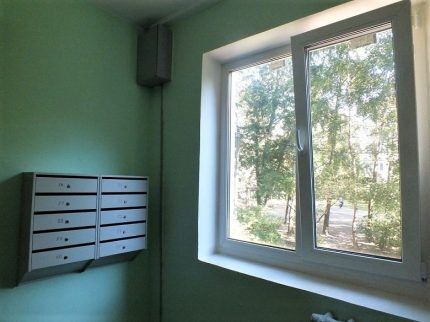
Since both pipes and gas equipment are located in the apartments, all further actions are carried out there.
First of all you need to:
- Open all doors and windows as quickly as possible. If the smell is too strong, you need to use a cloth for protection.
- If there is a landline telephone in the room, turn it off so that the call does not ring.
- Close the cut-off gas tap and all valves on the equipment.
- Leave the apartment, turning off the power supply at the switchboard along the way.
- Make a call to the Ministry of Emergency Situations, emergency gas or fire service.
Do not enter the house until specialists arrive and eliminate the danger. If possible, notify all residents of the building about the explosion threat and ensure that they also leave their apartments.
Now let’s find out where to call – if you smell gas either in the entrance or in the apartment.

For such cases, mobile operators provide the opportunity to make calls to emergency services even with a negative or zero balance:
- Megafon – 040
- MTS – 040
- Tele2 – 040
- Beeline – 004
Gorgaz employees insist that calls be made from the street, using a mobile phone. You should not call from a polluted entrance.
Emergency service representatives act according to instructions. Upon arrival, they must find the location of the leak, register this fact and take measures to eliminate the danger.
Usually there are several people working in a team at the same time, so all measures to eliminate a leak are completed quickly.After finishing the work, the foreman calls the control room, and the team returns to base.
What not to do in case of a leak?
One wrong move and the house could fly up into the air, so let’s figure out what not to do if you smell gas:
- light matches, use a lighter;
- enter a room with a burning cigarette;
- try to call from a gas-filled room;
- turn on lights or any electrical appliances;
- turn off electrical appliances that are turned on to avoid sparks.
It is also prohibited to return to an apartment or corridor where there is a smell of gas until the danger is eliminated by specialists.
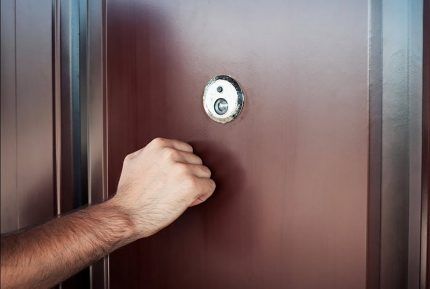
You can't use the elevator because there is a risk of getting stuck there.
If the gas coming out of the pipe catches fire, it cannot be extinguished. As long as the fire burns, there will be no explosion. You need to open the window and turn off the valve.
Preventive measures and rules
To ensure that the unpleasant smell of gas does not disturb the residents of the house, either in the apartment or in the entrance, a number of requirements must be met. And the most important of them is to use gas stoves and water heaters correctly, because half of the troubles occur precisely because of an irresponsible attitude towards equipment operation.
Apartment owners are obliged to:
- use serviceable equipment with an acceptable service life;
- use equipment strictly for its intended purpose;
- follow the schedule service (annual preventive examinations);
- repair pipeline elements or replace hoses in a timely manner.
The installation and connection of new equipment is carried out by representatives of the gas service.
If the apartment owner independently installed the hob or connected the oven, the gas technician must check the tightness of the connections and document this. Otherwise, such user is threatened fines.
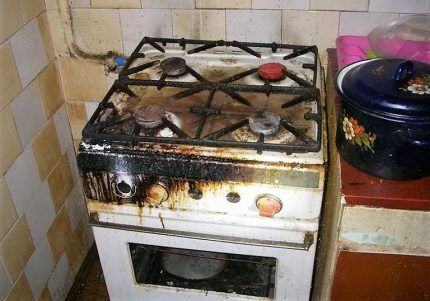
Under no circumstances should you carry out welding work yourself or move gas pipes to another place.
All transfer and replacement activities must be agreed upon with the service organization.
Conclusions and useful video on the topic
Brief and clear instructions about gas leaks:
General tips for leak detection:
The smell of gas does not appear just like that - it is always a signal of danger, requiring concentration and utmost attention.
If you live in a multi-storey building connected to a gas supply system, be always on the alert and call the gas service at the first sign of a leak. Only specialists can determine the cause of the danger and eliminate it.
An extremely unpleasant odor has appeared in your entrance and you suspect that its cause lies in a gas leak? Or are you wondering if it's really a leak? Ask your questions to our experts and other visitors to our site who have personal experience in leak detection - the feedback form is located below this publication.
